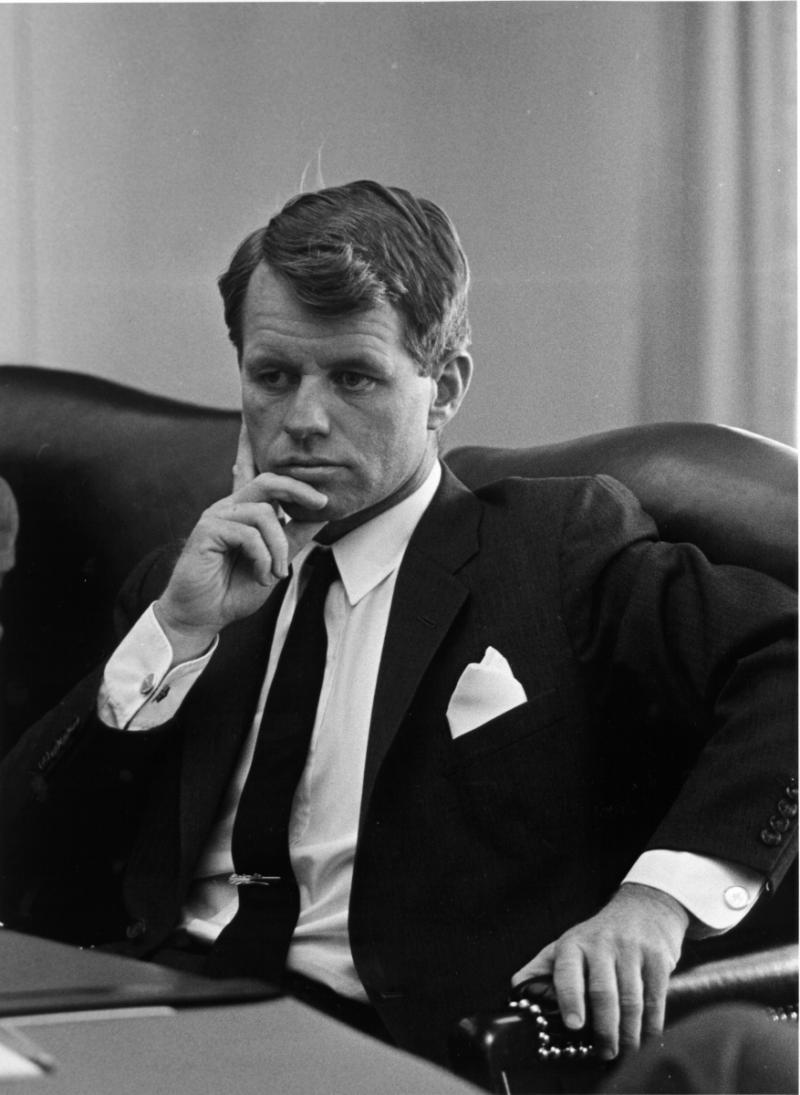Robert F Kennedy (1925-1968)
Younger brother of John F. Kennedy. (Robert) Kennedy's political career started as a lawyer in Washington D.C. In the 1950s he was John's campaign manager for Massachusetts Senator. Later in the sixties, he was his brother's campaign manager for president. After John became president he appointed Kennedy as Attorney General. It is during this time that Kennedy became increasingly involved in the Civil Rights Movement. In May 1961, a hostile mob threatened the Freedom Riders at a church in Birmingham, Alabama. In response, Kennedy threatened to send U.S. Marshals to guarantee the riders' safety. That year Kennedy ordered the Interstate Commerce Commission to end segregation in interstate bus terminals. The next year, Kennedy sent U.S. Marshals and troops to escort Black student, James Meredith, to the University of Mississippi. Kennedy would continue his civil rights activism as a Senator of New York and up to his assassination in 1968.
To find out more on Robert F. Kennedy go to:
https://www.jfklibrary.org/learn/about-jfk/the-kennedy-family/robert-f-k...

Okamoto, Yoichi. [Robert F. Kennedy, Cabinet Room, White House, Washington D.C.]. 1964. Film. Wikimedia Commons. http://en.wikipedia.org/wiki/File:Robert_F._Kennedy_1964.jpeg (Accessed December 12, 2018)
Public Domain
Public Domain is a copyright term that is often used when talking about copyright for creative works. Under U.S. copyright law, individual items that are in the public domain are items that are no longer protected by copyright law. This means that you do not need to request permission to re-use, re-publish or even change a copy of the item. Items enter the public domain under U.S. copyright law for a number of reasons: the original copyright may have expired; the item was created by the U.S. Federal Government or other governmental entity that views the things it creates as in the public domain; the work was never protected by copyright for some other reason related to how it was produced (for example, it was a speech that wasn't written down or recorded); or the work doesn't have enough originality to make it eligible for copyright protection.